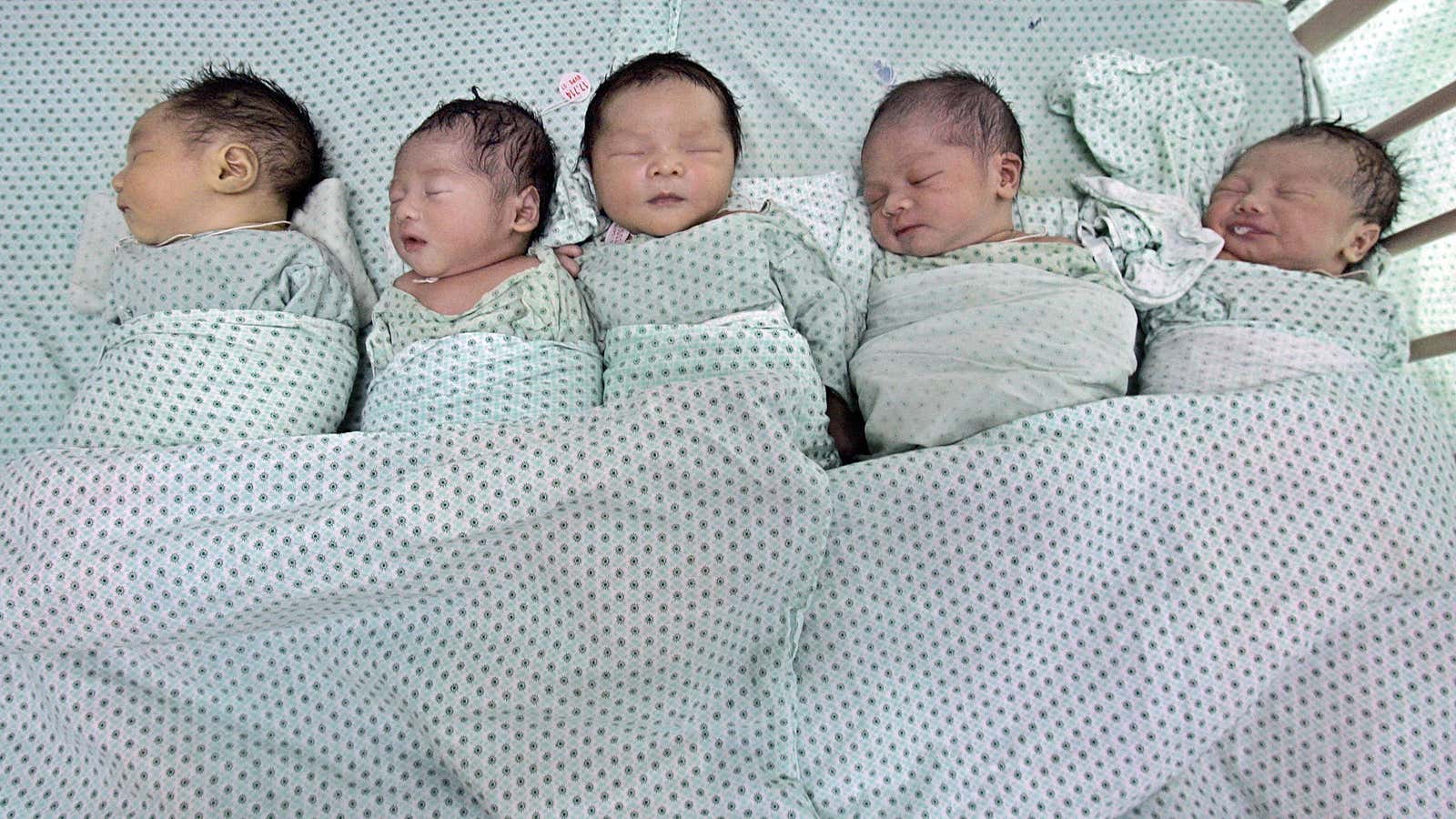This post has been corrected.
China Central Television is on another customer-protection crusade. The state-run TV station has accused Dumex, which is owned by France’s Danone, of bribing doctors in China to recommend its baby formula to new parents in order to “cultivate addiction,” as Caijing put it. The “secret investigation” that CCTV aired showed a doctor in a major hospital in Tianjin instructing a reporter masquerading as a Dumex salesperson on how to pay doctors to market the formula. According to Reuters’ account of the CCTV report, Danone was shelling out $49,000 a month to various staff members at the Tianjin hospital alone.
CCTV has a reputation for jingoistic consumer-protection exposés of foreign companies behaving badly. Danone said it was “shocked by the CCTV report” and is investigating (paywall).
But if true, the news would not be a complete shock. Breastfeeding competes directly with what’s now a huge business in China. On track to hit $9 billion this year, China’s infant formula market is projected to grow to $13 billion by 2015. At the same time, China’s rates of breastfeeding have plummeted since the 1970s, when infant formula first hit the market. While 58% of Chinese newborns are exclusively breast-fed, that percentage is just 14% after five months, compared with 38% globally. By month six it’s dropped to 2% (pdf, p.3); by comparison, 16% of American babies are still exclusively breast-fed at six months. The State Council wants to up that rate to 50% by 2020. Moreover, the government’s recent crackdown on GlaxoSmithKline and other foreign pharmaceutical companies has shed light on a system of kickbacks rampant in Chinese hospitals.
Kickbacks or no kickbacks, the growth in the use of formula in emerging markets is in no small part because of aggressive marketing by infant formula companies. A study by Save the Children, a non-governmental organization, found that representatives from infant formula companies had directly contacted some 40% (pdf, p.3) of mothers surveyed, with nearly 80% of those mothers saying the rep recommended formula or gave them free samples. Of all the companies, Danone was the most aggressive, according to Save the Children. And it’s not just China; Danone was accused of misleading Turkish mothers in June.
The Dumex scandal lies at the intersection of a crackdown on hospital bribery as well as the government’s punishment of foreign dairy companies for price-fixing. In early August, despite off-the-charts demand for its product, Dumex was one of six firms fined a combined 669 million yuan ($109 million) for setting minimum resale prices. Given the prominence of both those campaigns, government action against foreign infant formula-makers for similar activity could soon follow.
Correction: September 16, 2013, 4:30 p.m. (EST): This story has been corrected to compare rates of exclusive breast-feeding in China and the US, as well as the global average. An earlier version compared rates of exclusive breast-feeding at different time periods.
